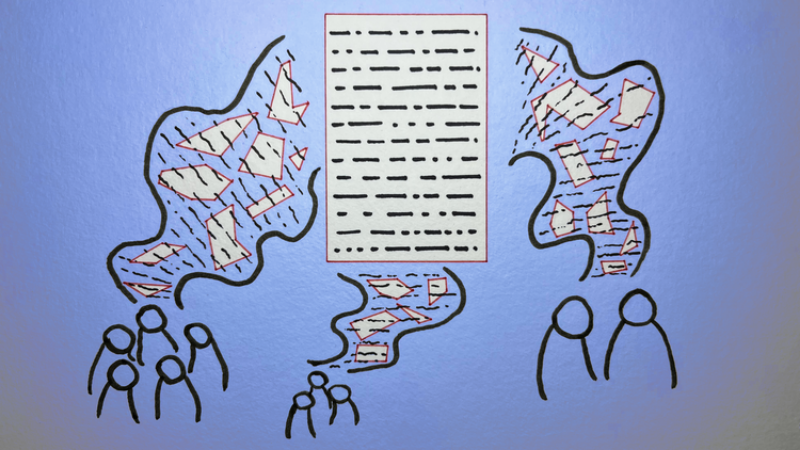Making sense of our connected world
The Human in the Loop in automated credit lending – Human expertise for greater fairness
How fair is automated credit lending? Where is human expertise essential?
Impactful by design: For digital entrepreneurs driven to create positive societal impact
How impact entrepreneurs can shape digital innovation to build technologies that create meaningful and lasting societal change.
Identifying bias, taking responsibility: Critical perspectives on AI and data quality in higher education
AI is changing higher education. This article explores the risks of bias and why we need a critical approach.
Platform governance
How can the goals of corporations and the values of society be reconciled on online platforms?
Who spreads disinformation, where, for what purpose, and to what extent?
How much disinformation do German politicians and parties actually spread? On which platforms and to what ends? Two new studies provide systematic answers.
Inside content moderation: Humans, machines and invisible work
Content moderation combines human labour and algorithmic systems, exposing global inequalities in who controls what we see online.
Beyond Big Tech: National strategies for platform alternatives
China, Russia and India are building national platform alternatives to reduce their dependence on Big Tech. What can Europe learn from their strategies?
Counting without accountability? An analysis of the DSA’s transparency reports
Are the DSA’s transparency reports really holding platforms accountable? A critical analyses of reports from major platforms reveals gaps and raises doubts.
Emotionless competition at work: When trust in Artificial Intelligence falters
Emotionless competition with AI harms workplace trust. When employees feel outperformed by machines, confidence in their skills and the technology declines.
Defending Europe’s disinformation researchers
Disinformation researchers in Europe face lawsuits, harassment & smear campaigns. What is behind these attacks? How should the EU respond?
Debunking assumptions about disinformation: Rethinking what we think we know
Exploring definitions, algorithmic amplification, and detection, this article challenges assumptions about disinformation and calls for stronger research evidence.
AI resistance: Who says no to AI and why?
This article shows how resisting AI systems means more than protest. It’s a way to challenge power structures and call for more democratic governance.
Blind spot sustainability: Making AI’s environmental impact measurable
AI’s environmental impact spans its entire life cycle, but remains a blind spot due to missing data and limited transparency. What must change?
The digital metabolic rift: Why do we live beyond our means online?
We cut plastic and fly less, but scroll and stream nonstop. The digital metabolic rift reveals why our eco-awareness ends where the digital begins.
Escaping the digitalisation backlog: data governance puts cities and municipalities in the digital fast lane
The Data Governance Guide empowers cities to develop data-driven services that serve citizens effectively.
Online echoes: the Tagesschau in Einfacher Sprache
How is the Tagesschau in Einfacher Sprache perceived? This analysis of Reddit comments reveals how the new simplified news format is discussed online.
Opportunities to combat loneliness: How care facilities are connecting neighborhoods
Can digital tools help combat loneliness in old age? Care facilities are rethinking their role as inclusive, connected places in the community.
Unwillingly naked: How deepfake pornography intensifies sexualised violence against women
Deepfake pornography uses AI to create fake nude images without consent, primarily targeting women. Learn how it amplifies inequality and what must change.
Artificial intelligence with purpose: Mapping the landscape of public interest AI
How is AI being used for the common good? A new dataset is mapping the landscape of public interest AI by cataloguing impactful projects worldwide.
Who hired this bot? On the ambivalence of using generative AI in recruiting
Generative AI in recruiting promises efficiency, but may also quietly undermine the human connection that HR decisions and candidate fit rely on.
Polished yet impersonal: The unintended consequences of writing your emails with AI
AI-written emails can save workers time and improve clarity – but are we losing connection, nuance, and communication skills in the process?
AI at the microphone: The voice of the future?
From synthesising voices and generating entire episodes, AI is transforming digital audio. Explore the opportunities and challenges of AI at the microphone.































